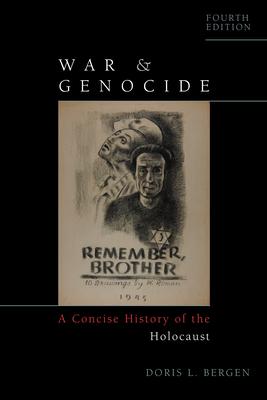In examining one of the defining events of the twentieth century, Doris L. Bergen situates the Holocaust in its historical, political, social, cultural, and military contexts. Unlike many other treatments of the Holocaust, this revised, fourth edition discusses not only the persecution of Jews, but also other groups targeted by the Nazis: people with disabilities, Roma, queer people, Poles in leadership positions, Soviet POWs, and others deemed unwanted. In clear and eloquent prose, Bergen explores the two interconnected goals that drove the Nazi German program of conquest and genocide--purification of the so-called Aryan race and expansion of its living space--and invites readers to reflect on how the Holocaust connects to histories of violence around the world. Replete with firsthand accounts from victims, survivors, and eyewitnesses, this book is immediate, human, and eminently readable.

In examining one of the defining events of the twentieth century, Doris L. Bergen situates the Holocaust in its historical, political, social, cultural, and military contexts. Unlike many other treatments of the Holocaust, this revised, fourth edition discusses not only the persecution of Jews, but also other groups targeted by the Nazis: people with disabilities, Roma, queer people, Poles in leadership positions, Soviet POWs, and others deemed unwanted. In clear and eloquent prose, Bergen explores the two interconnected goals that drove the Nazi German program of conquest and genocide--purification of the so-called Aryan race and expansion of its living space--and invites readers to reflect on how the Holocaust connects to histories of violence around the world. Replete with firsthand accounts from victims, survivors, and eyewitnesses, this book is immediate, human, and eminently readable.